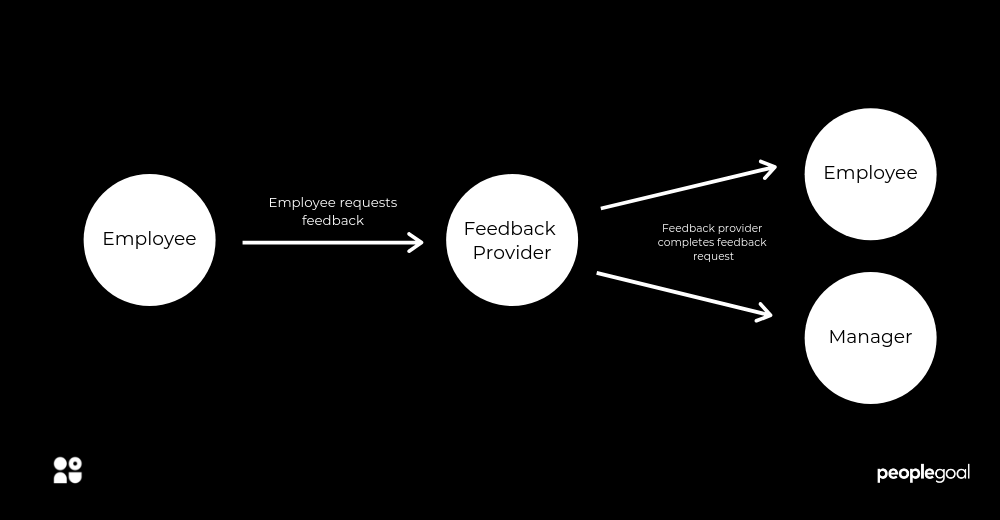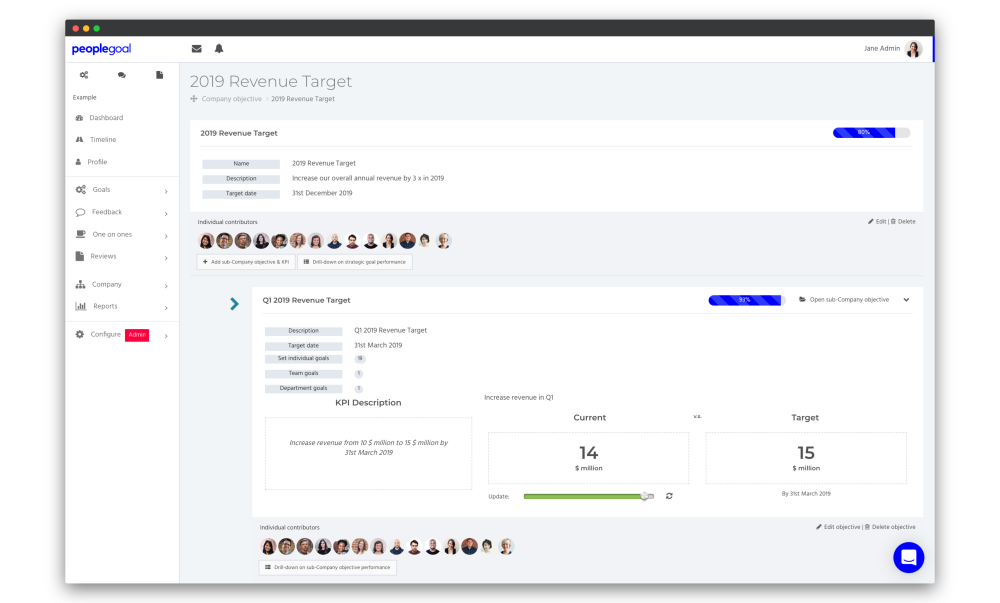Career Development is an important part of Human Resources in any organization. It involves helping employees find the right career path for them and supporting their training and development to achieve their goals.
Career development is a lifelong process that requires employees to self-evaluate and identify their strengths and weaknesses. Organizations can then provide relevant training and development opportunities, pay for employees to attend courses to earn new certifications, and promote mentoring schemes.
It is beneficial for organizations to support career development because it upskills existing employees and maximizes employee retention. Employees who feel supported are more engaged and perform better.
What is Career Development?
Career Development is the lifelong process of choosing a career, improving the relevant skills, and advancing along a career path. It is about learning and making decisions that will help you obtain your ideal job and lifestyle.
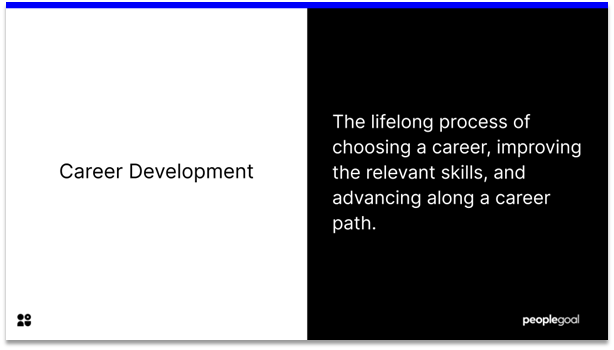
💡 TIP: It is important that you train for a career that suits your personality, skill set and interests.
Factors Affecting Career Development
Whilst career development planning is hugely important for any employee, there are factors which both enhance the progress that you make or prevent you from reaching your full potential.
We identified 4 factors that affect career development. It is vital that you consider these as you advance along your career path.

Personality Type
Every employee is different, and it is crucial that you self-assess to identify your strengths and weaknesses. Some employees will have soft skills which are better suited to some jobs than others.
It is also important to consider your interests, what motivates you and which type of work environment you are most likely to succeed in.

Age
Some people may be concerned that they are too old to be changing careers and feel that they are unable to take a promotion that will bring greater responsibility.
Equallt, other employees may fear that they are too young to move into a leadership role and lack the necessary experience.
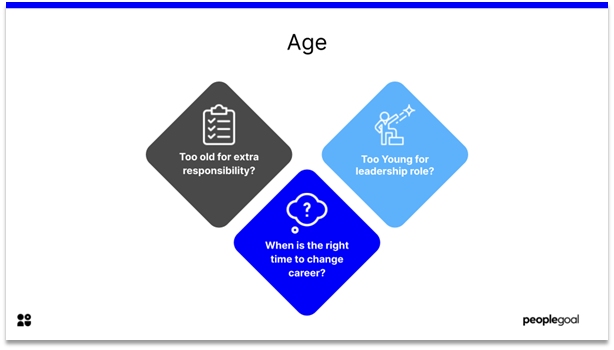
Family Obligations
It is not uncommon for employees to pause their career development as they seek a greater work-life balance. This may be because they need to care for their children or the elderly.
Most organizations will support you with your career development regardless of your personal life. It is in their best interest to help you progress and upskill as they seek to improve employee retention.
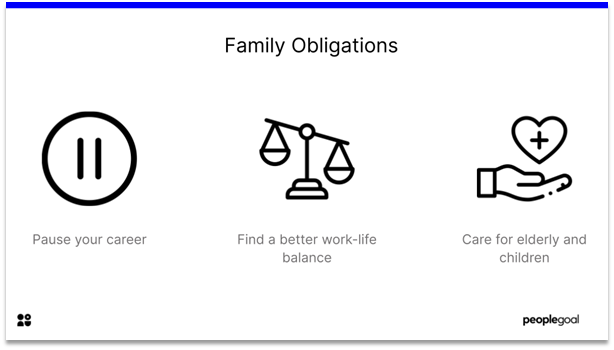
Company Culture
Many organizations provide support and assistance in writing a career development plan. These help you set short-term and long-term career goals and define the ways in which you will achieve these. Gallup found that organizations who invest in employee development experience 11% greater profitability.
Managers can set up coaching or mentoring schemes and provide the relevant resources and information to help you upskill. They appreciate employees who are proactive and request more responsibility.
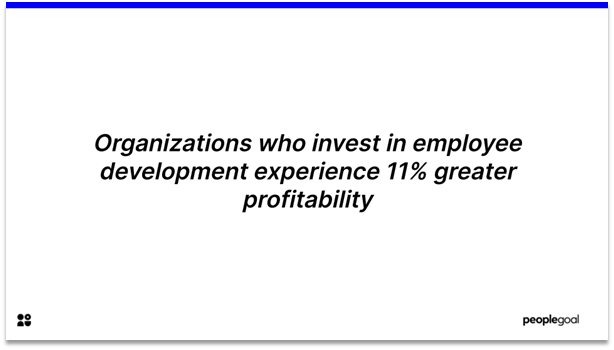
Check out our guide on how to write a development plan 👈
The 4 Essentials of Career Development
We have listed 4 key ways to start your career development.

1. Self-Assessment
It is essential that every employee recognizes their strengths and weaknesses. Ask yourself what you need to improve on and how to do this.
Think about what motivates you, your preferred ways of working, what type of company culture you thrive in, and the best role to utilize your skills in.
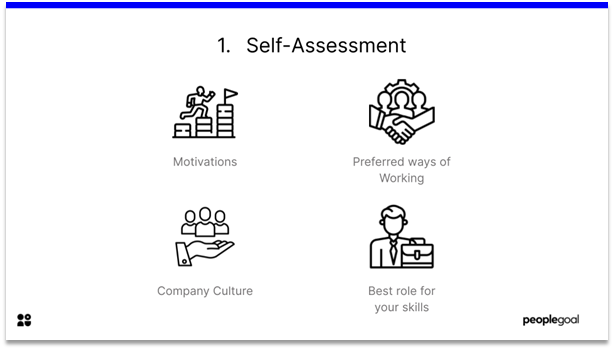
2. Research
Research what interests you and how to progress along your chosen career path. Investigate how your field or industry is changing. New jobs are constantly emerging. The World Economic Forum predict that 65% of children entering primary school today will work in job types that do not exist yet.
When writing your development plan, create a timeline and mark on key milestones. This will help you track and quantify your progress. It will also motivate you to achieve your goals.
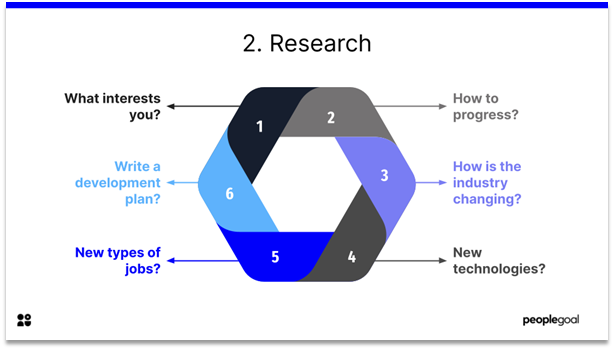
3. Speak to your Supervisors
Speak to your supervisor to assist you in planning your career development. Gallup shows that employees who speak to their managers about their goals and successes are 2.8 times more likely to be engaged.
Managers can advise on professional qualifications and certifications you can apply for. They will have information regarding online training courses and can arrange for you to be mentored or coached.

4. Be Proactive
Join online communities and forums to build your network and find new opportunities for your skills development.
Speak to your Human Resources Department as they can advise on how to set realistic and measurable goals. They can help identify how to improve your soft skills and build your resume.
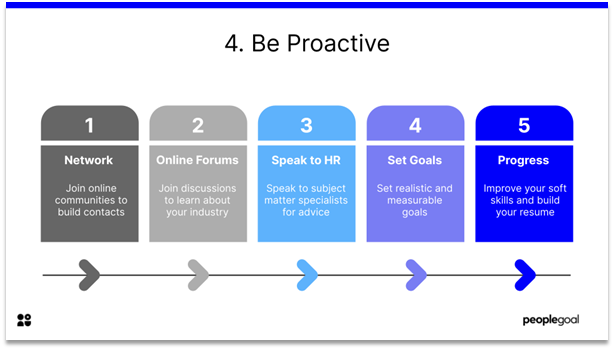
Career development: Our Concluding Thoughts
Career Development is a lifelong process whereby an employee chooses their career path and takes the necessary steps to improve their skills and achieve their goals.
This can be affected by a range of personal factors including age, family obligations and personality traits. However, organizations also play a crucial role as they can provide training and development opportunities in a specific area of expertise. They can fund online courses, arrange job shadow schemes, and can help employees write a development plan.
It is crucial for organizations and employees to work together to help individuals with their career management.
⭐ Book a Demo with PeopleGoal today to empower your employees with development and growth opportunities. Our app store covers development plans, one-to-ones, and career plans.
Ready to 3x Your Teams' Performance?
Use the best performance management software to align goals, track progress, and boost employee engagement.

